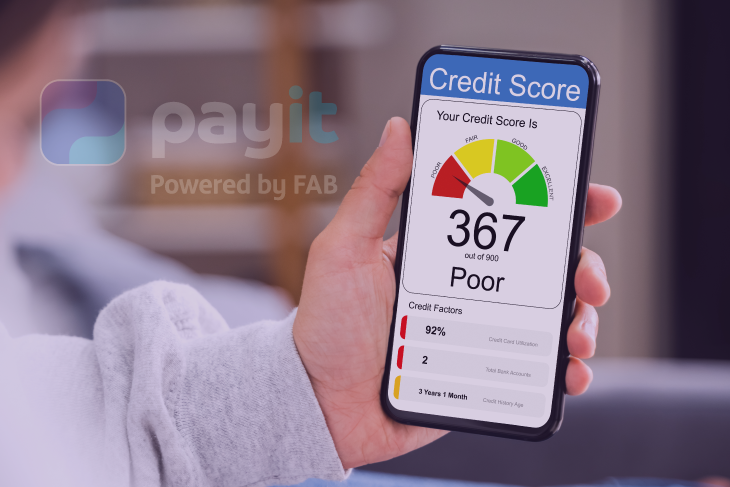Home » Cashless Payments Knowledge Hub » Ways to Fix Your Bad Credit Score in UAE

A credit score is a crucial aspect of financial planning. A good credit score in UAE determines the ease with which you can secure loans, credit cards, and other forms of financing.
A good credit score can open doors to favourable interest rates and terms, while a poor credit score can hinder your financial opportunities. In the UAE, credit scores range from 300 to 900, with higher scores indicating better creditworthiness.
If you are facing the problem of bad credit, in this article we will help you how you can fix it.
Here is a step-by-step guide to fixing your bad credit score in UAE this year..

Timely payments on all credit obligations, including loans, credit cards, and bills, are essential for rebuilding your credit score. Late or missed payments can significantly impact your score negatively.
You can use calendar alerts or mobile apps to remind you of due dates. If you are struggling with multiple payments, prioritise bills that significantly impact your credit score, such as credit cards and loans.
Taking on new debt can hurt your credit score, especially if you already have significant outstanding obligations. Focus on paying off existing debts to improve your financial standing:
For this, you can track your income and expenses to identify areas where you can cut back and allocate more funds towards debt repayment. You can also choose various debt repayment methods like
If used wisely, credit cards can help build a positive credit history and improve your credit utilisation ratio. You should aim to use less than your available credit limit.
You should understand that a credit card is not your capital but your debt. So, think twice before you spend money freely using a credit card, thinking you have enough funds in your hands. Also, never exceed your credit limit, as it can severely impact your credit score.
You May Like: 4 Ways to Get Money without a Credit Check
Credit utilisation is a key factor in credit score calculations. A high utilisation rate can indicate over-reliance on credit, which may negatively affect your score.
If you have multiple credit cards, spread your spending across them to keep individual utilisation rates low. Also, consider making multiple monthly payments to keep your balances low. Keeping the utilisation ratio lower than 30% can benefit you in the long run.
Paying off high-interest debts first can maximise the positive impact on your credit score. This strategy helps reduce the amount of interest you pay over time and accelerates debt repayment.
For this, create a list of your debts sorted by interest rate from highest to lowest. If you get any extra cash, focus on paying the highest-interest debt while making minimum payments on the others.
If you have multiple high-interest debts, consider consolidating them into a single loan with a lower interest rate to simplify repayment and save on interest.
Regularly checking your credit report helps you track your progress and identify any errors or issues that could be affecting your score.
You should ensure that all information is accurate, including your personal details, debts, and payment history. If there are any disputes, take them up with the relevant credit bureau. It can take months for your credit score to update, so be patient and keep working on improving it.
Making lump sum payments can significantly reduce your debt and improve your credit profile. Whenever you receive extra income, such as bonuses or tax refunds, consider using it to pay down your debts.
Eventually, you can pay off debts and this reduction can lead to a noticeable improvement in your credit score over time.
Improving a bad credit score in the UAE requires consistent and responsible credit management. Remember, improving your credit score takes time and diligence, but with persistence, you can achieve better financial health and greater access to credit.
Get the Letsgo Payit Card to make seamless international money transfers or make payments on the go.